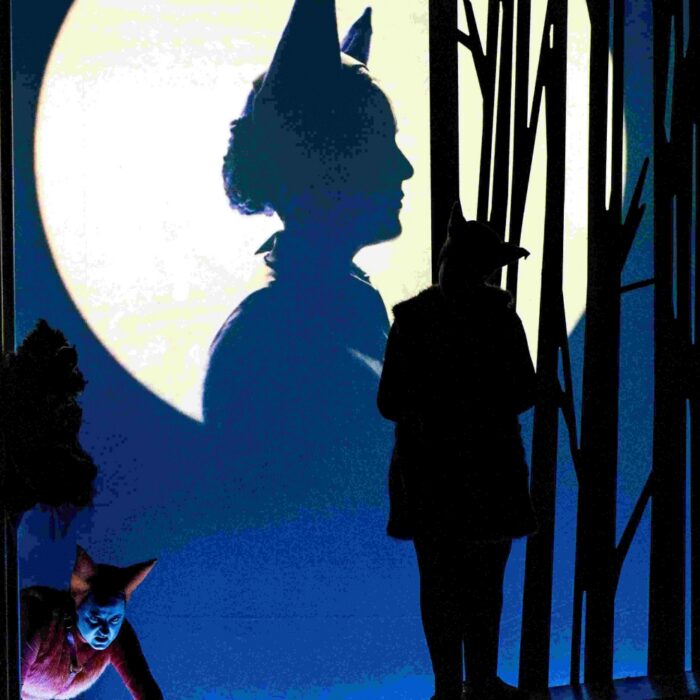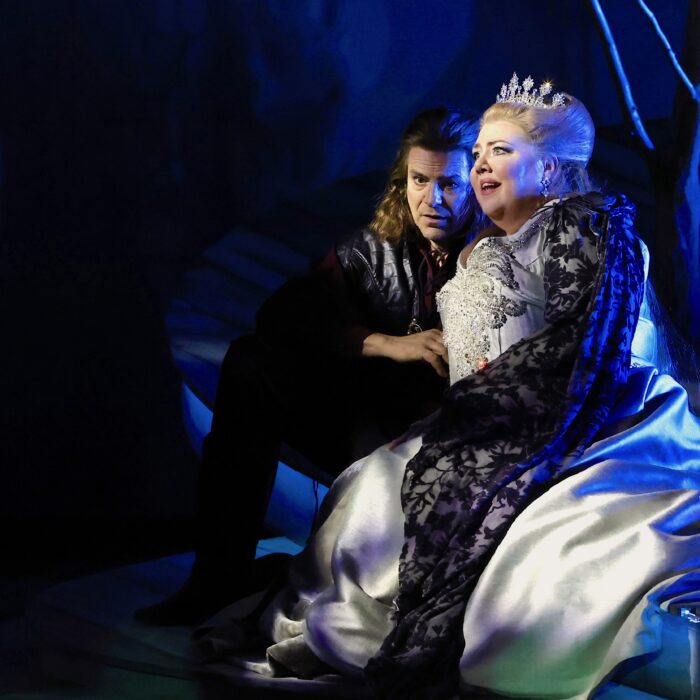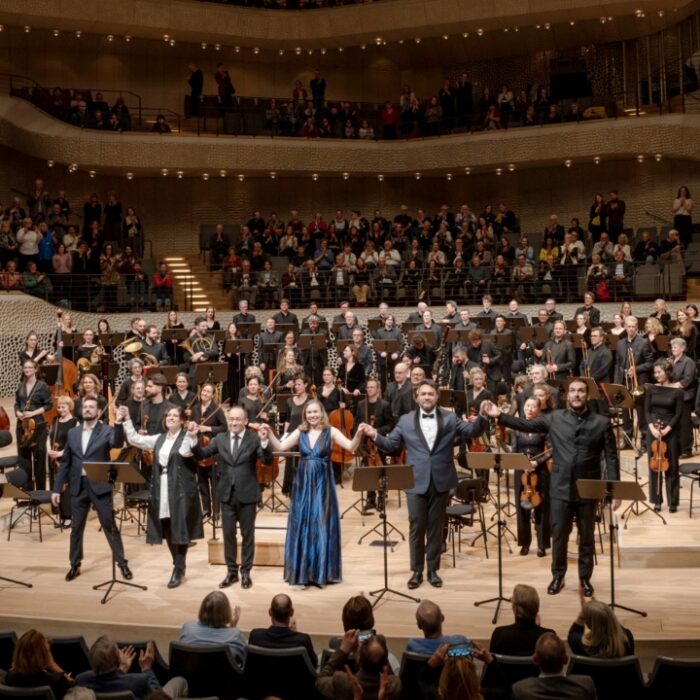
Wexford Festival Opera 2024 Review: I Pagliacci
Standout Performances From Soprano Laura Aherne and Tenor Samuel White in a Strong Production
By Alan Neilson(Photo: Pádraig Grant)
Each year the Wexford Factory, the festival’s young artist program, produces an opera for the main stage, allowing its participants to gain experience in major roles as well as providing them with the opportunity to play smaller roles in the company’s headline productions. In previous year’s, the Factory’s productions have included successful performances of operas such as Bellini’s “I Capuletti e I Montecchi” and Rossini’s “L’Italiana In Algeri” and has seen many of its singers, including Ava Dodd and Giorgi Manoshvili, establish international careers. This year, the Factory’s chosen opera was Leoncavallo’s “I Pagliacci,” which, even with its limited resources for scenery, proved to be a huge success, containing some fabulous performances from its young singers.
Five Impressive Singers
Tenor Samuel White gave a superb performance as the jealous Canio. From the moment he set foot onto the stage, it was clear things were not going to end well. He was irritable, suspicious and unpleasant, and as events took a turn for the worse, he became increasingly aggressive and violent, to the extent that he actually appeared to be losing his sanity; certainly, his murder of Nedda and Silvio came as no surprise at all. Nor was his vocal performance any less impressive. He possesses a secure voice that maintains its quality across the range with a seamless passaggio. It is also a very expressive voice, which he used intelligently to capture Canio’s violent and menacing personality.
Soprano Laura Aherne took full advantage of her opportunity with a compelling performance in the role of Nedda that showed off her vocal beauty to good effect. She possesses a fresh, bright, agile voice and is able to grab the attention of the listener with her natural lyricism and ease of delivery that allow the melodies to take wing. She is also a very expressive singer, convincingly portraying Nedda’s extreme emotions that shifted rapidly between love, hatred and disgust. Whereas Canio, overwhelmed by his jealousy and rage, was unable to step into character as Pagliaccio, during the troupe’s performance, Nedda assumed the character of Colombina without any problem, at least initially, which allowed Aherne to develop two distinct characters. Her Colombina was so different to Nedda; she was flighty and unserious, so that as Canio’s emotions spiralled out of control, she danced happily around the stage, seemingly totally oblivious to what was about to happen. It was a cleverly managed scene and showcased Aherne’s fine acting skills.
Bass-baritone Giorgi Lomiseli created a very unpleasant reading as Tonio. His treatment of Nedda was bullying and vicious, while his fawning subservience when dealing with Canio turned the stomach. When not fermenting trouble, he was lurking slyly in the background, watching and listening with evil intent. He had no redeeming qualities whatsoever; he was a truly unlikable and pathetic character. Lomiseli’s well-defined portrait was supported with an expressively strong vocal presentation, characterised by a pleasing tone, an inviting lyricism, clear projection and an ability to coat the voice with emotional depth.
Baritone Matteo Loi’s portrayal of Silvio was compromised by his insipid clothing, which made him look decidedly uninteresting and certainly no threat to Canio. Vocally, however, he was more convincing, producing a suitably passionate and emotionally forceful reading, although there was a notable thinning of the voice as he pushed into the upper register.
Tenor Paolo Nevi in the relatively small role of the more stable Beppe gave a fine performance.
Clear, Imaginative Direction
The conductor, Emanuele Quaranta, elicited a sensitive performance from the members of the Wexford Festival Opera, which captured the score’s colourful contrasts, successfully highlighting the heavy darkness that pervades large sections of the drama. He also ensured a reading with plenty of energy that promoted the drama’s quickly changing nature and built the underlying tensions. He was also very supportive of the relatively inexperienced cast.
Stefania Panighini’s direction carried the drama in a direct and entertaining way, cleverly adding points of humour to elevate the unfolding tragedy, while the support and insights she offered to the singers ensured polished performances from all involved. Although her staging was very basic, it was no less successful for the fact. A row of coloured lights hung across the stage on a couple of poles with a few pieces of scenery against a black backdrop was enough to create a believable stage for the travelling theatre. There was even a singing severed head and a crocodile, in which a player put his head, to entertain the crowd. She was also successful in bringing attention to Tonio’s message from the prologue: there is a real person with a real life that exists behind the clown’s laughter, as there are for all actors and people in general, in which emotions surge, sometimes with fatal consequences.
Frances White produced a fabulous array of imaginative and colourful costumes, which focused on the contrasts that threaded their way through the work, notably between good and evil, art and life, and between the players and their characters. Tonio’s costumes, for example, were particularly successful. During the prologue, he appears as an angel, but as soon as the first act begins, he has shed his wings and has taken on a meaner, nastier appearance, which alters once again when he takes on the role of Taddeo in the play, appearing more like the devil himself, with horns protruding from his head. Nedda is initially dressed as a typical 19th century peasant girl, but as Colombina, she is almost childlike in her red and light brown oddly shaped attire. The only costume that failed was Silvio’s, which drew too much attention for all the wrong reasons; it was dull and undermined Kennedy’s characterisation.
It was a production that worked on every level, especially in the quality of the performances produced by the singers, which were very impressive. And in doing so, it confirmed the important role that is being performed by the Wexford Factory.



